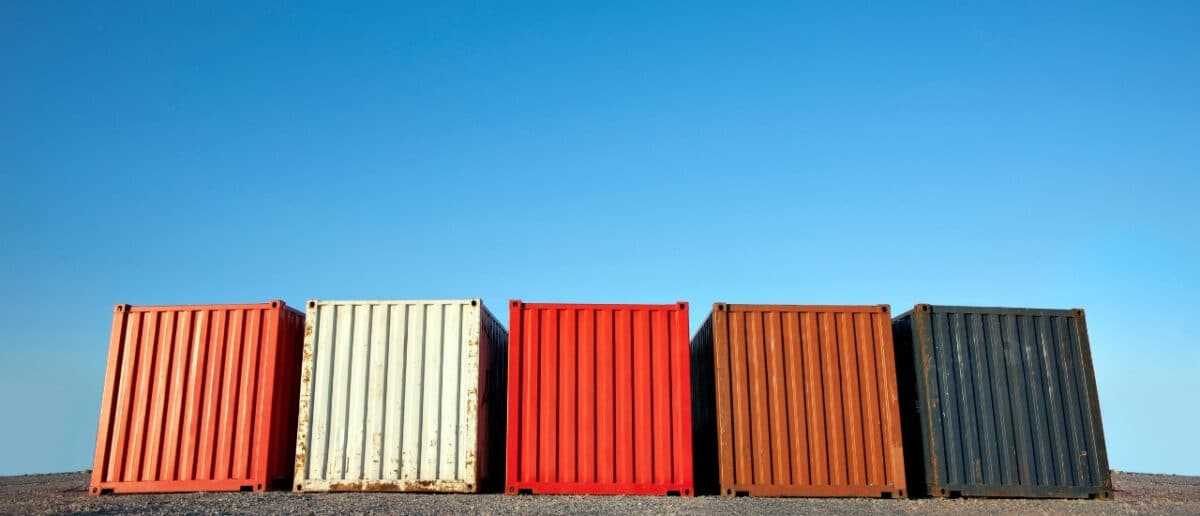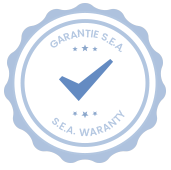There are many reasons for buying a shipping container. Perhaps you are a wholesaler who needs to export your product line, or maybe you need a shipping container as a permanent storage solution. Whatever your reasons are, there are a number of questions you should ask yourself before purchasing your shipping container.
Why Are You Buying a Shipping Container?
The very first question you should ask yourself is a simple but vital one: why are you buying a shipping container? Shipping containers, of course, have a number of functions, but a couple stands out:
Storage
Shipping containers are spacious and therefore make great permanent storage spaces. If you have a property large enough to hold one, a shipping container can act as a great substitute for a shed or garage.
They also make for an excellent temporary storage solution during construction projects. If you are performing a home renovation, for instance, and need a place to store the contents of your home, a shipping container can be immensely helpful.
Shipping containers are airtight and waterproof, making them impervious to the elements. Whether that be humidity, rain, or snow, you can rest assured that your possessions will be safely kept in the confines of a shipping container.
Exporting Products
If you run a business and need to regularly export your products overseas, using a shipping container is essential. An airtight and waterproof shipping container will ensure that your products arrive at their destination in the same pristine condition they were sent out in.
What Type and Size of Shipping Container Should I Buy?
After you have determined why you are buying a shipping container, you must ask yourself what size of a shipping container is appropriate. Many sizes exist, each with its own advantages and disadvantages, depending on your specific needs.
10-Foot Standard Container
This standard sea container is constructed using anti-corrosive and high-quality steel that offers enhanced rust properties compared to conventional steel. Their floors are constructed using high-density marine-grade plywood of nineteen plies, resulting in lower moisture content in the plywood, which in turn prevents termite and fungi attacks.
Additionally, sea containers are equipped with four weatherproof vents that perform the function of ventilating the container. These shipping containers are ideal for exporting products overseas as their construction qualities will ensure a long lifespan. They are also ideal for permanent storage, mobile storage, intermodal shipping, transportation, and storage units.
20-Foot Standard Container
This standard container is made using high-quality and durable steel, designed to last through the rigors of travel on the high seas or through rough terrains, as well as for use as storage facilities for extended periods of time. It is also tamper-proof, making it a popular choice for extended storage solutions. This container can be tailored for accommodation, warehousing, workshops, canteens and kitchens, and more.
20-Foot Open-Sided Steel Container
This container type boasts all the advantages of a standard container, but can also be customized to become an open-sided twenty-foot container. The main benefit of this is that they allow for easier access and facilitate faster loading as well as unloading of cargo.
40-Foot Standard Container
This container boasts all the advantages of a standard container but is especially convenient for long-term storage. The extra head-room makes it an ideal choice for users intending to convert the container for other uses such as storage units. It is a special container that operates to transport slightly large equipment, furniture, or different kinds of products.
It can also be used as mobile storage for when you have a large number of items to store and do not intend to move the 40’ container around.
If you are using this container for shipping rather than long-term storage, take this into account: it can be transported easily when empty but requires special transport once it’s full. Since most trucks are limited to 25,000 pounds, 40-foot containers can only be moved around using a crane.
40-Foot High Cube Container
This container is just like the 40-foot standard container, only it is almost one foot taller. This makes it the ideal choice for those who have the requirement of transporting or storing larger items that will not be fitting into containers of standard size.
Specialty Containers
A number of specialty containers also exist. If you require a smaller container due to limited storage needs, or because it must fit in a tight space, consider an 8-foot or a 9-foot container. If you need something a little larger than a 40-foot container, choose a 45-foot alternative. If you need a container for commercial or industrial storage, opt for a 53-foot container, which is optimal for these purposes.
How Much Would You Like to Spend?
After determining a few shipping container options regarding type and size, ask yourself how much you want to spend on one? Ensure that the container you choose not only fits your storage needs but your budget as well. If it makes financial sense to buy a specific shipping container, by all means do so. However, if you only need a shipping container temporarily and are on a limited budget, consider renting one.
Is the Supplier Reputable?
Relying on a private seller for the purchase of a shipping container is risky. Oftentimes, these sellers are dishonest and look to take advantage of inexperienced buyers. For this reason, always rely on a reputable seller. Companies with an established reputation, positive reviews, and excellent customer service are preferable. They will allow you to inspect their containers on-site to ensure that the quality is adequate.
Can the Container Be Delivered?
Shipping containers can be unwieldy and difficult to transport yourself. Rely instead on reputable sellers that can arrange for the container’s delivery themselves. Furthermore, a reputable seller will ensure that the container is delivered in a timely manner.
Conclusion
As you can see, it is important to ask yourself a few key questions before purchasing a shipping container, as there are many factors to consider. Once these questions have been properly answered, you can ensure that the right shipping container will present itself to you.


